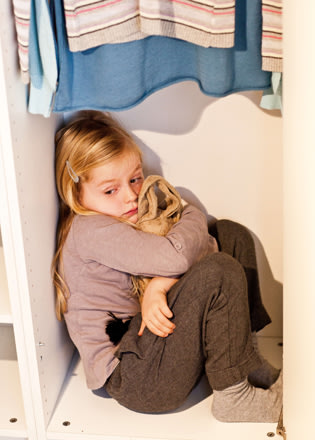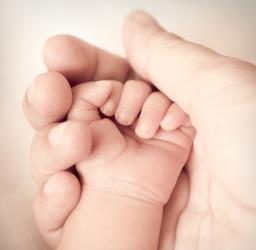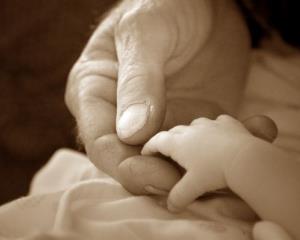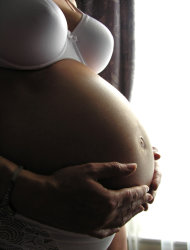We bring you information on issues of health, healthy living, fertility, parenting, lifestyle, environment and more. Email us at parentingt@yahoo.com
Tuesday, July 31, 2012
Psychological child abuse ‘as damaging as physical abuse’
Belittling, ridiculing or threatening your child as harmful as physical assault, says study
 Psychological child abuse is worse than physical abuse © Rex (picture posed by model)
Psychological child abuse is worse than physical abuse © Rex (picture posed by model)
But it turns out that words are actually more harmful to a child’s development than a kick or a punch.
Researchers at McMaster University in Canada have found that psychological abuse is the most challenging and prevalent form of child abuse – yet it’s widely under-reported.
Psychological child abuse includes:
• Belittling a child• Ridiculing them for showing normal emotions
• Singling them out or humiliating them in public
• Putting them in chaotic/unpredictable circumstances or dangerous situations
• Threatening a child with violence
• Isolating them and restricting social interaction
• Corrupting them by encouraging antisocial behavior
• Restricting or interfering with a child’s cognitive development
• Being detached from them
• Providing little warmth, nurturing or praise
Working in late pregnancy linked to low birth weight babies
Effect 'equal to that of smoking while pregnant,' study finds
 Mother and babyExpectant mothers who work up to their due date are likely to have babies with a lower birth weight, a new study has revealed.
Mother and babyExpectant mothers who work up to their due date are likely to have babies with a lower birth weight, a new study has revealed.
 Mother and babyExpectant mothers who work up to their due date are likely to have babies with a lower birth weight, a new study has revealed.
Mother and babyExpectant mothers who work up to their due date are likely to have babies with a lower birth weight, a new study has revealed.
Women who worked eight months of pregnancy had babies on average around half a pound lighter than those who stopped work between six and eight months, researchers at the University of Essex found.
The study, which drew on data from three major studies, two in the UK and one in the US, found the effect of continuing to work during the late stages of pregnancy was equal to that of smoking while pregnant.
Babies whose mothers worked or smoked throughout pregnancy also grew more slowly in the womb.
Past research has shown babies with low birth weights are at higher risks of poor health and slow development, and may suffer from multiple problems later in life.
Sunday, July 29, 2012
The baby who helped her paralyzed dad walk and talk again
 After suffering a stroke at age 22, Mark Ellis was left unable to move. He could communicate only by rolling his eyes or blinking. The British man's wife, Amy, had just given birth to their daughter, Lola-Rose. "It was a dream turned into a nightmare,"Amy Ellis says. Then, Ellis started mimicking his baby as she learned her first words and took her first steps, and, defying doctors' predictions, he started re-learning how to walk and talk, too. Here, a guide to this miraculous story:
After suffering a stroke at age 22, Mark Ellis was left unable to move. He could communicate only by rolling his eyes or blinking. The British man's wife, Amy, had just given birth to their daughter, Lola-Rose. "It was a dream turned into a nightmare,"Amy Ellis says. Then, Ellis started mimicking his baby as she learned her first words and took her first steps, and, defying doctors' predictions, he started re-learning how to walk and talk, too. Here, a guide to this miraculous story:
Cohabitating Couples Having More Babies
 (NEWSER) – Non-traditional families are on the rise in the US, as more unmarried couples are having babies together. In 2002, just 14% of all births were to women who lived with a partner. But between 2006 and 2010, 23% of all births were to cohabitating women, a new federal report finds. About half of those births were intended, while more than 75% of births to married women were intended, USA Today reports. For unmarried women who were not living with a partner, just one-third of births were intended.
(NEWSER) – Non-traditional families are on the rise in the US, as more unmarried couples are having babies together. In 2002, just 14% of all births were to women who lived with a partner. But between 2006 and 2010, 23% of all births were to cohabitating women, a new federal report finds. About half of those births were intended, while more than 75% of births to married women were intended, USA Today reports. For unmarried women who were not living with a partner, just one-third of births were intended.
Researchers thought that, thanks to better contraception options, unintended births might drop—but the longer-acting contraceptive methods aren't widely-used enough to make a difference. Plus, "because there's an underlying shift in the population that more people are cohabiting, that leads to more unintended pregnancies and unintended births," says one expert. Overall, 37% of births were unintended—and that number has not changed since 1982.
Newser
If Your Dad Is Older, You May Live Longer
 (NEWSER) – As men get older, their DNA matures—and when that genetic material is passed on to children, it may mean a longer life for the kids, researchers find. Thus kids with older dads and grandfathers may be "genetically programmed" for higher life expectancies, the BBC reports. It all comes down to telomeres, the structures that protect the ends of chromosomes. Telomeres in the majority of cells shrink as they get older—but it's the opposite with sperm cells.
(NEWSER) – As men get older, their DNA matures—and when that genetic material is passed on to children, it may mean a longer life for the kids, researchers find. Thus kids with older dads and grandfathers may be "genetically programmed" for higher life expectancies, the BBC reports. It all comes down to telomeres, the structures that protect the ends of chromosomes. Telomeres in the majority of cells shrink as they get older—but it's the opposite with sperm cells.
In sperm cells, telomeres get longer as a person gets older; if these longer telomeres are passed to children, it can mean longer telomeres, and longer lives, for the next generation. A relatively old paternal grandfather can mean even longer telomeres in a child. If fathers keep having children at older ages, it could mean longer life expectancy for the greater population, researchers say. But that doesn't necessarily mean men should delay having kids: Doing so boosts the risk of miscarriage.
Newser
Newser
To Keep Baby Healthy, Get a Dog
 (NEWSER) – The best preventive health care for your baby may come in canine form. A study focused on respiratory tract infections (like colds and ensuing ear infections) found that Finnish infants who lived with dogs were healthy 73% of the time during their first 12 months; for kids without dogs, the figure was 65%, the Wall Street Journal reports. The kids who were healthy most often (75.7% of the time) lived with dogs who spent at least 18 hours a day romping outdoors. That could be because those pups bring home more dirt and germs, which experts say can help boost a developing immune system.
(NEWSER) – The best preventive health care for your baby may come in canine form. A study focused on respiratory tract infections (like colds and ensuing ear infections) found that Finnish infants who lived with dogs were healthy 73% of the time during their first 12 months; for kids without dogs, the figure was 65%, the Wall Street Journal reports. The kids who were healthy most often (75.7% of the time) lived with dogs who spent at least 18 hours a day romping outdoors. That could be because those pups bring home more dirt and germs, which experts say can help boost a developing immune system.
Babies with dogs also needed fewer antibiotics, a researcher says. Overall, kids in homes with dogs had about a 30% lower risk of respiratory infection symptoms and about half the ear infection risk, the AFP notes. Cats, too, appeared to help babies' health, but the link was weaker. The study reviewed 397 kids born in the same hospital; research was based on weekly parental polls, starting when the baby was nine weeks old. But almost no one got off scot-free: Only 3% of babies didn't have a runny nose at some point.
Newser
Saturday, July 28, 2012
Too much junk food may lower sperm count
 Linked to levels of saturated fats
Linked to levels of saturated fats
If you're thinking of starting a family, it may be time to cut back on the hot dogs and fries, as a new study has found that eating too much fatty food can lower a man's sperm count.
Men who ate the most fatty foods had the lowest sperm counts compared with those who ate the least, researchers from Harvard Medical School found.
But the study also found that men who ate healthier foods with more omega-3 fatty acids, the type of fat often found in fish and plant oils, had more and "better formed" sperm.
Harvard researchers questioned 99 men about their diet and analysed their sperm samples over a four year period.
Keeping your child safe in the sun

Finally summer is here – and with it the urge to let your little ones dash about in the sun with carefree abandon.
But before you set them off on their rampages on the beach, in the park or simply in the garden, experts warn it’s important to take precautions to keep them safe in this heat.
From the sun’s impact on sensitive young skin to the danger of bright UV rays for their eyes, there are key steps you should take to prep your little ones first.
Here’s our top ten guide to keeping them safe in the sun:
Mother avoids miscarriage by lying upside down for three months
 Gives birth to healthy baby girl
Gives birth to healthy baby girl
A mother who lay upside down for three months to avoid having a miscarriage has given birth to a healthy baby girl.
The mum, Donna Kelly, 29, suffered from a weak cervix, and had to lie in a bed angled to relieve pressure on her cervix from 20 weeks into the pregnancy after a scan revealed her cervix was starting to open prematurely.
Fortunately, Mrs Kelly was under the care of one of the world’s leading experts on recurrent miscarriage, Professor Siobhan Quenby.
Mrs Kelly, from Coventry, had experienced two late miscarriages since the birth of her son in 2007 and was desperate to have a brother or sister for her little boy, Joshua.
At one stage the baby was just one inch away from the top of her cervix but by using gravity to move the baby away from the cervix the aim was to relieve pressure and prevent another pre-term labour.
The risks of having a big baby
 Macrosomia can be unexpected
Macrosomia can be unexpected
The birth of another super-sized baby - a 15.5 lb boy born in China - casts the spotlight on a relatively common event - large newborns.
The event, also known as macrosomia, takes place in between one and 10 per cent of deliveries, though the size of boy born this week is an anomaly.
But it does happen, and often times parents are caught unaware.
When Karen Gallacher was expecting last year, she was warned that her baby might be large and weigh up to 9 lb. But when Farrah was born, she weighed 12.6 lb, a UK record.
The weight of the average newborn in the UK is around 7.5 lb for boys, and 7.25 lb for girls.
Ms Gallacher is a petite 5ft 2in, and had a normal pregnancy, without particular food cravings.
In other words, while macrosomia can be tentatively diagnosed during pregnancy, it is only confirmed once the baby has been born and weighed.
Friday, July 27, 2012
The experiment of the first child
 Our experiment turned out just fine
Our experiment turned out just fine
Having a child is a huge shock, especially for those who have had no prior experience of babies or what to do with them all day. There are no manuals that come with children, no training courses or anything of the sort; you just have to learn on the job. It's a hard slog, and for every decision to get right there are bound to be two that you get wrong. For us, now we have a second child, we can see the mistakes we made with our first child and are determined not to do the same things second time around.
Thursday, July 26, 2012
Women who fear childbirth more likely to have difficult labour

Pregnant women who are severely afraid of giving birth are more likely to have a longer labour, or an emergency caesarean, study finds.
experience, according to a Norwegian study published in the International Journal of Obstetrics and Gynaecology.
Researchers found that women who suffer from tokophobia, a phobia of labour, give birth in eight hours. Those with a more relaxed attitude give birth in less time, just six hours and 28 minutes.
Tips for furnishing your baby's nursery
When you start 'nesting' towards the end of your pregnancy, it feels very important to get every little detail right in time for the big arrival.
Here are my tips for how to furnish your baby's nursery based on how I kitted out my baby's room for his early days.
How to budget for an unexpected baby as a single mum
 An expectant mother
An expectant mother
My first pregnancy was unplanned so I hadn't saved up for what was about to become the most expensive and joyful journey of my life. The first thing I did was buy a pregnancy magazine. I told very few people that I was pregnant because I was still in shock myself, and not on earth sure of how I was going to handle things.
I remember making my first tentative walk around Mothercare. I'd never imagined myself in the store, and felt a bit odd with no baby bump showing yet. But I wanted to check out all the things I was going to need. It was rather overwhelming and I assumed I'd need everything.
The prams and pushchairs were the first shock. I was looking at two weeks wages for a pram. Then the cot, changing unit and high chair, and already I was feeling a tad sweaty with fear.
Obese children already show signs of heart disease

Two out of three very obese children already show early signs of heart disease, new research suggests.
By the age of 12, two-thirds of severely obese children had at least one risk factor for heart disease such as high blood pressure or high blood glucose levels, a study in The Netherlands found.
Tuesday, July 24, 2012
Children who see family violence more likely to harm others

Children who witness violence at home are more likely to seriously harm someone else, carry a weapon or excluded from school, according to a survey by the NSPCC.
The NSPCC said the findings show a clear link between a young child witnessing family violence and serious behaviour problems later in life.
Why Japan prefers pets to parenthood
In a smart and expensive neighbourhood of Tokyo, Toshiko Horikoshi relaxes by playing her grand piano. She's a successful eye surgeon, with a private clinic, a stylish apartment, a Porsche and two pet pooches: Tinkerbell, a chihuahua, and Ginger, a poodle. "Japanese dog owners think a dog is like a child," says Toshiko. "I have no children, so I really love my two dogs."
Tips on Relieving Babys’ Teething Problems
As a
parent it is always a joyous moment when our babies start sprouting their first
set of teeth. The joy knows no bounds especially when it comes at the expected
time. However, this joy is immediately replaced by the worries of pains
associated with teething in babies. Not all children are subjected to this pain,
but majority are. These tips are purposed to help relieve the pains for your
baby.
Babies benefit from early interaction with dads

Babies who are positively engaged with their father at three months old have fewer behavioural problems by the age of one, a study suggests.
Behavioural problems are one of the most common psychological problems affecting children, and have been linked to a range of health and psychological problems in teenagers and adults, the researchers from Oxford University said.
Monday, July 23, 2012
Flying with young children on long haul flights
When my son was almost five months old, I wanted for him to meet my family abroad. So I booked the tickets for Christmas and thought this would be perfect - not stopping to consider what it would mean to be in an aeroplane for ten hours with a five months old, flying in bad weather conditions and experiencing delays at the airport.
Well, I learned through experience how to cope on such a long flight, and what I should bring or do to calm him down. Here are some of my tips for travelling with young children on long haul flights.
Baby number twelve on the way for ‘Britain’s busiest mum’
Can this be for real?
Life for the mum-of-eleven is about the get busier – as baby number 12 is on the way.
But as well as the joy of parenting, Tania, 37, has experienced huge heartache after suffering eight miscarriages over the years.

Tania Sullivan never takes a night off or hires a babysitter and home schools all her children. She is up at the crack of dawn to prepare breakfast for her kids and even finds time during the day to post an entry on her blog.
But as well as the joy of parenting, Tania, 37, has experienced huge heartache after suffering eight miscarriages over the years.

Twin Teens Achieve the Impossible in Medical Science
Saturday, July 21, 2012
How to Help Children Overcome their Fears
Fear
is an integral part of a child’s development. This is especially the case for
kids of about 3 – 6 years. This is when they begin to think and begin to
rationalise things. As parents, we sometimes stoke these fears especially when
we ‘threaten’ them jocularly though, that we will call the bogeyman, the
masquerade or some other threatening monsters for them if they do not behave in
a particular manner.
Preventing Sicknesses During Rainy Season
Rainy
season is a time of joy and a time of hope for many reasons. First, the farmers
and gardeners are joyous and hopeful that their crops will germinate and
gardens will blossom. Secondly, and especially for those that do not have a good
uninterrupted supply of potable water supply, it provides a source of water
supply that caters for so many needs in the household. However, rainy season
equally brings a lot of health challenges especially for children. These
challenges include, but are not limited to influenza, diarrhoea, cholera,
malaria and other waterborne diseases. The good thing however, is that through
some precautionary measures, these health challenges can easily be prevented.
Here are some tips:
Thursday, July 19, 2012
Baby dead ‘for a day’ as Japan mother chats on net
TOKYO – A woman whose baby boy lay dead for nearly a day while she chatted on Internet forums has been arrested in Japan, media and police said Friday.
Yumiko Takahashi knew that 19-month-old Neo was running a high fever when she checked on him on the afternoon of June 24 last year but left him lying on his bed untended, police said.
A post mortem examination revealed Neo had died around 2 pm on June 26th, police said. His mother found his lifeless body the following morning, newspaper reports said.
Takahashi, 29, was arrested Thursday on suspicion of child neglect and causing death, a spokesman for police in Otsu, western Japan said Friday, adding that the lag had been due to officers “carrying out the necessary investigations”.
Takahashi, whose first child died a few days after birth and who lost another son in a fall from an apartment balcony, told police she had been using chatrooms, media reported.
“I have sought solace in chatting on the Internet to get connected to other people for three years since I got depressed for losing my son in an accident,” broadcaster NHK quoted her as saying.
“Child raising is too much hassle.”
Global Nation
Friday, July 13, 2012
Get Your Child to Love Vegetables
For some reason, most children have a pretty big aversion to eating vegetables, and it can't be the taste because they can be made taste great! We all know how good they are for us and how important it is to get our kids eating them so here are seven simple tips for getting your children to love eating their greens.
Eat them yourself
Eating the vegetables that you would like your child to eat is probably one of the most important ways of getting them even to try them in the first place. If you really don't like the veg that you want them to eat, try introducing that particular veggie when you are around someone who does like it and try not to make a big deal out of it, keep it genuine, though this is where some acting skills may come in handy.
Keep going with it
If your child tries a vegetable and then tells you that they don't like it, do not rule it out. It may not be the taste that they don't like, but rather the texture or smell. Keep going with it and continue to put it on their plate whenever you are having that particular veggie for dinner, and If they insist that they really do not like it after numerous attempts, leave it for while, and then try it again, possibly in a different shape or guise.
Eat them yourself
Eating the vegetables that you would like your child to eat is probably one of the most important ways of getting them even to try them in the first place. If you really don't like the veg that you want them to eat, try introducing that particular veggie when you are around someone who does like it and try not to make a big deal out of it, keep it genuine, though this is where some acting skills may come in handy.
Keep going with it
If your child tries a vegetable and then tells you that they don't like it, do not rule it out. It may not be the taste that they don't like, but rather the texture or smell. Keep going with it and continue to put it on their plate whenever you are having that particular veggie for dinner, and If they insist that they really do not like it after numerous attempts, leave it for while, and then try it again, possibly in a different shape or guise.
Wednesday, July 11, 2012
Wild Crows Inhabiting the City Use it to their Advantage
This is simply amazing in terms of intelligence...I just couldn't help but to share
Sunday, July 8, 2012
Talking About Scouts, Girls Guide, Boys Brigade and Girls Brigade and the Benefits of Membership for Your Chid
Many
people would have come across the Scouts at one time or the other, and wondered
what it is those young ones in uniform do and what it is that drives them. Some
of course would remember the name Sir Robert Baden-Powell who is the Chief
Scout Master of the world, having been its founder in 1907 in England. Since
then, the Scout Movement has spread throughout the length and breath of the
world. Many have passed through this organization and many youths today are
still part of it. There is also the Girls Guide Movement founded in 1909 by
Lady Agnes Baden-Powell, Sir Baden-Powell’s wife. Equally, there are the Boys
and Girls Brigade founded in Scotland in the late 1880s. What are the benefits
for out youths? Why should parents encourage their kids to join such
organizations
Getting your Children Interested in Volunteering
As
kids grow, it is very necessary that we as parents start letting them imbibe
those qualities that would help them in later life. Volunteering is one sure
way of getting kids to start feeling a sense of responsibility as well as
charity. On the other hand, it will make them inculcate leadership skills that
will see them grow to be leaders in future. At the same time, it is a good way
to get them engaged in meaningful things during the vacation, instead of
letting them run loose and idle. Remember the say that “an idle mind is a
devil’s workshop” and we wouldn’t want that to happen to our kids. Getting them
involved in volunteering will equally help in bringing out their passion and
talents, which should be nurtured (see our section on Discover your child’s
hidden abilities). It will also make them more aware of their environment and
how others live. We however acknowledge that it may be difficult to identify
where and how kids may volunteer, so we offer the following tips.
Friday, July 6, 2012
Horrifying Moment: A Toddler Almost Plummeted to Death
Parents need to be more careful and safety conscious
Thursday, July 5, 2012
Dealing With Kids’ Aggressive Behaviour
These
are challenging times. However, we must not let it get the better of our kids
and us. Aggression is one sore point that most parents have to contend with at
one point or another in the developmental stage of the child. However,
confronting this ugly behaviour is not one that can be won through the use of
force or through aggression by the parents. It would require rather, an
understanding of the causes of such aggressiveness and a subtle approach to
correct the child. These are some hints on dealing with aggressive kids with a
view to correcting their ways.
Tips on Backpack Safety
These
days it is not out of place to see a toddler pre-schooler with his backpack in
place. Backpack has since left the preserve of the military and the trekkers
and mountaineers to stake its claim amongst both the young and the old, and
yes, even toddlers. While the use of backpack could be convenient, it poses
some dangers, especially for our little ones. Please observe the following
simple tips for effective backpack safety.
Teaching Kids about Diversity and Tolerance
We
live and interact in a more diverse world today than when most of us were
growing up. Then, it was normal to have the same type of people around you,
looking like you and speaking the same language. However, these days, and
especially with migration and mobility, the world is turning into a global
village. It is, therefore, normal to find a mixture of all in one setting. For
instance, in a preschool of about 15 people, you could get a Nigerian, an
American, a Japanese, a Chinese, an Indian, a Saudi and British all in the same
class. In such a setting too, there will be differences in religion and
culture. What this, therefore, means is that our children are enmeshed in
diversity more than we were. If we do not set the pace for them, they might not
interact well. The key to this interacting, therefore, is to teach them to
understand the diversity while being tolerant of it. Tolerance also extends to
understanding gender differences, social differences, differences in economic
status, and disabilities in persons. We as parents can teach our children
tolerance and it is important to start at a very early stage in life. The
following could act as a guide in teaching them.
- Show tolerance in your daily interaction with people around you
- Do not make jokes about other people, especially in your children’s presence
- Don’t encourage stereotyping
- Educate children about diversity; you could use a set of Alphabets or Numbers to illustrate this. Example of such illustration is that while each alphabet or number is different from the other, together they make up the alphabets and numbers, and they have to tolerate one another to produce words etc.
- Teach about different culture; show illustrations
- However, they should hold their culture in high esteem and not let it others intimidate them with theirs
- Teach children about respect for self and others
- Helping your children build a good self esteem and confidence will make the value others; see our article on self esteem and confidence in kids
- Encourage kids to understand diversity and tolerance of other cultures and behaviour; however, tolerance does not extend to acceptance of bad behavior
- Teach them about differences in religion and language
- Let them understand that not all people are privileged, that some could have poor economic status but that does not make them less of people
- Understanding of gender and different roles is very important; this will bring about respect and tolerance
- Teach them morals as it is the rock on which tolerance is built
Subscribe to:
Posts (Atom)